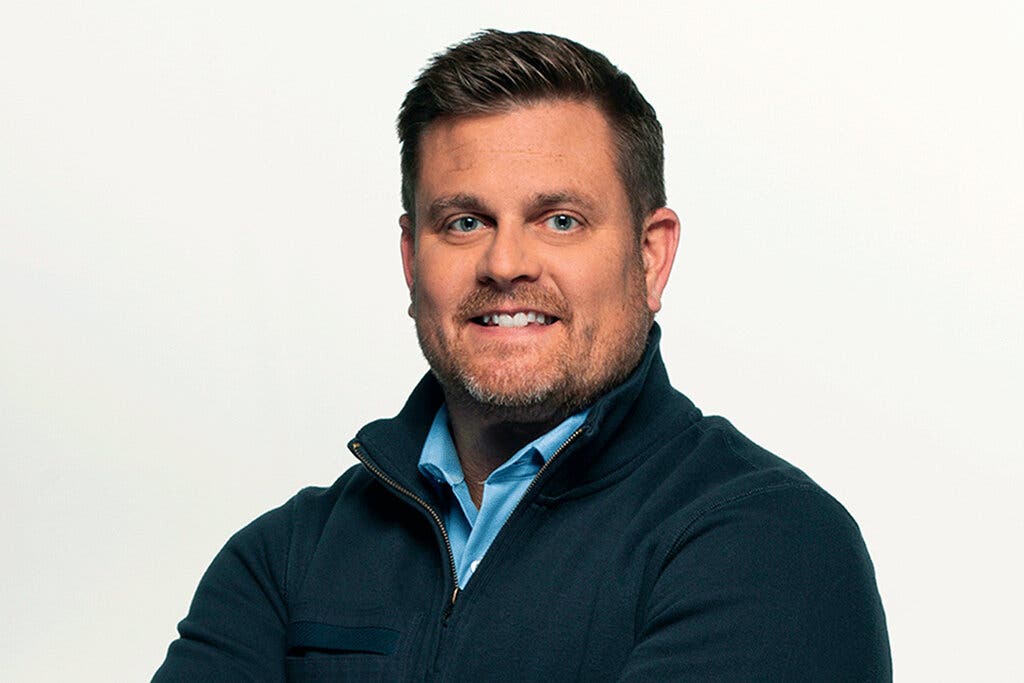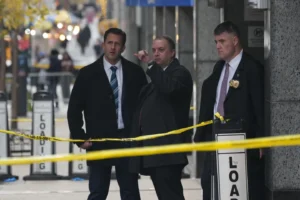By Susan Ronikson | Dec 11, 2024 Updated 06:37 a.m. ET
Brian Thompson, the chief executive of UnitedHealthcare who was gunned down in a brazen killing in New York, was laid to rest this week at a private funeral service in his Minnesota hometown.
On Monday, while the nation was transfixed by the arrest of a 26-year-old man from Maryland who was charged with the murder, family and friends of the slain executive gathered at a Lutheran church in Maple Grove, Minn., to mourn the loss of a husband and father who ascended from modest roots in Iowa to one of the most powerful roles in the health care industry.
In the days since Mr. Thompson’s death, there has been an outpouring of anger at the insurance industry for denying medical claims, with some people even seeming to cheer his killing online. The vitriol has stunned those who were closest to Mr. Thompson, leaving many of them to grieve his death in private ways.
“Brian was an incredibly loving husband, son, brother and friend,” Mr. Thompson’s family said in a statement. “Most importantly, Brian was a devoted father to our two sons, and we will miss him for the rest of our lives. We appreciate the overwhelming outpouring of kind words and support we have received.”
Mr. Thompson, 50, grew up in a working-class family in Jewell, Iowa. His mother was a beautician, according to family friends, and his father worked at a facility to store grain, according to an obituary of his father.
He spent his childhood summers “walking beans” on farms, going row by row through the fields to kill weeds with a knife, or working manual labor at turkey and hog farms, according to two friends.
“He was just a farm kid living out in rural Iowa,” said Taylor Hill, 50, a close friend of Mr. Thompson from childhood. “Everybody got along with him and he got along with everybody else. He was just a great, silly, funny, smart guy to be around all through the years that I have known him.”
A diligent student, Mr. Thompson quickly rose to the top of his class of about 50 students at South Hamilton High School in Iowa, graduating as valedictorian in 1993, teachers said. He threw himself into extracurricular activities, playing on his high school basketball team and the golf team, and playing trombone in the school’s marching band and orchestra, yearbook photos show. He was homecoming king his senior year, and class president.
Dick Steffen, who taught government and economics at the high school, recalled having students enter a national essay contest to vie for a free trip to Washington, D.C. Mr. Thompson’s essay won. When it was time to travel to collect the award, Mr. Thompson told his classmates that he was nervous because it would be his first time flying in an airplane.
“He was an excellent student and a model person,” Mr. Steffen said. “He was a super kid.”
Mr. Thompson went on to attend the University of Iowa, graduating with a degree in business administration with a major in accounting in 1997, according to a university spokesman. He graduated with special honors near the top of his class.
His wife, Paulette Reveiz, also attended the University of Iowa around the same time, studying business administration and receiving a master’s degree in physical therapy. They raised two sons in Maple Grove, a suburb of Minneapolis.
By many accounts, Mr. Thompson kept a low profile in his personal life. He attended his son’s lacrosse games, according to colleagues, and maintained a love of golf, taking his two sons out to the course, according to friends.
But Mr. Thompson was best known for his role in the health care industry, and was devoted to a demanding job, colleagues said.
Mr. Thompson, whom colleagues knew as “BT,” joined the conglomerate UnitedHealth Group in 2004, and spent about 20 years rising through the ranks.
He became chief executive of the insurance division, UnitedHealthcare, in April 2021, leading a unit that employs about 140,000 people and reported $281 billion in revenue last year. Under his leadership, the company’s profits rose to more than $16 billion last year from $12 billion in 2021.
Mr. Thompson received total compensation of $10.2 million last year, with $1 million in base pay augmented by substantial cash and stock grants.
Colleagues said Mr. Thompson was aware of complaints about the health insurance industry, but at investor conferences and on his LinkedIn account he conveyed a desire to make health care more accessible.
“We work every day to find ways to make health care more affordable, including reducing the cost of lifesaving prescription drugs,” he wrote on LinkedIn a year ago as he promoted the company’s efforts to reduce the cost of medical treatments.
But during Mr. Thompson’s tenure, UnitedHealthcare and its parent company were accused by lawmakers and regulators of systematically rejecting health claims.
UnitedHealth Group was the subject of a blistering report by a Senate panel this year that documented insurers’ refusal to pay for the care of older people recovering from falls or strokes. Mr. Thompson’s company was cited for a surge in denial rates of post-acute care for people on private Medicare Advantage plans, which increased to 22.7 percent in 2022 from 10.9 percent in 2020.
Earlier this year, Mr. Thompson and two other UnitedHealth Group executives were accused of insider trading and fraud in a lawsuitfiled by the Hollywood Firefighters’ Pension Fund.
The lawsuit claimed Mr. Thompson sold $15 million in personally held company stock while the Justice Department was starting an antitrust investigation into UnitedHealth Group, an inquiry that he and other executives had failed to disclose. When news of the investigation became public, the price of the company’s stock plunged, erasing nearly $25 billion in shareholder value, according to the lawsuit. On Tuesday, officials from UnitedHealth Group declined to comment on the matter.
Luigi Mangione, the 26-year-old man charged with the killing, had a document conveying disgust with insurance executives when the police took him into custody on Monday, according to investigators.
Friends and colleagues said they struggled to reconcile how Mr. Thompson, a man they remembered as mild-mannered and humble, could be portrayed as a symbol of the excesses of the health insurance industry.
Steve Nelson, the president of Aetna and a former chief executive at UnitedHealthcare, said Mr. Thompson had a self-deprecating sense of humor that put others at ease. “He actually was the smartest guy in the room, without being annoying,” Mr. Nelson said.
Matt Burns, a former colleague at UnitedHealthcare, described Mr. Thompson as an “incredibly talented guy and a very practical leader.”
“He was a guy who had Midwestern roots,” said Mr. Burns, 46, who left the company around 2018. “He was practical and relatable and had this human touch with everyone he came across that made them feel like they were the most important person in the room.”
Mr. Burns said former colleagues were in a state of shock. People in the health insurance field were well aware that “there are people who often vilify and assume the worst” about the industry, he said, but no one was expecting this.
“I think people are at a loss,” he said.
Mr. Hill, who grew up with Mr. Thompson but lost touch after high school, said he had recently reconnected with his friend. Despite his corporate success, Mr. Thompson remained the same funny, down-to-earth guy, Mr. Hill said.
“A lot of people are judging him, not knowing him at all,” he said. “And it’s not right. That’s not him. It’s just a sad thing of what has happened and even more sad of what people have tried to turn him into.”








Be First to Comment